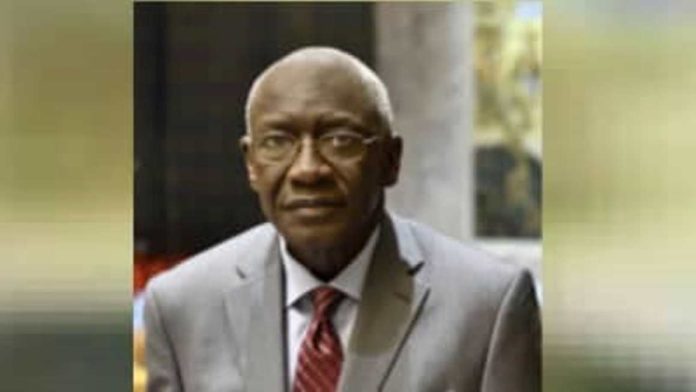By Nelson Manneh
Dr. Lamin J. Sise, the Chairperson of the Truth, Reconciliation and Reparation Commission (TRRC) has on Monday, 8th June said they will hear testimonies on former President Yahya A.J.J Jammeh’s HIV/AIDS treatment programme and many other topics IN 2020.
The 2020 work plan, as outlined by Dr. Sise, will be the former president’s HIV/AIDS and other diseases alternative treatment programme, enforced disappearances, the case of the 44 Ghanaians and other West African migrants who were killed in The Gambia in July 2005, the April 2016 incidents involving the NIA and resulting in the death in custody of UDP’s Solo Sandeng; institutional hearings on the National Intelligence Agency (NIA), the Judiciary and the National Drug Law Enforcement Agency (NDLEA) and additional hearings on sexual and gender-based violence as well as the Junglers (part two).
TRRC on Monday resumed its public hearings following months of closure following the declaration of the State of Emergency by the Government and the subsequent ban on all public gatherings as a measure to curtail COVID-19.
On Tuesday, March 18, 2020, only two days into their thirteenth session, the TRRC suspended its public hearings. During that session, only two witnesses appeared before the Commission.
This is the fourteenth session by the TRRC. So far, the total number of witnesses who appeared before the Commission since the commencement of the public hearings on January 7, 2019 is now 219. The witnesses included 54 women, 40 perpetrators, alleged perpetrators and adversely mentioned persons, as well as some expert witnesses. Twenty-five Gambian Diaspora witnesses had also testified via video link.
At the commencement of the 13th session on 16th March 2020, the Commission did announce that they will focus on hearing evidence of unlawful attacks against road users by former President Jammeh’s convoys. They also indicated that the remaining period of the session will be used to start the institutional hearings on the prison system and the violations of the rights of inmates and detainees.
That session could not be completed! The outbreak of the coronavirus pandemic brought normal life to a grinding halt around the world. The Government of The Gambia, like other governments, instituted a lockdown and ordered observance of measures relating to public gatherings, public health regulations and social distancing protocols.
“During the current session, we will pick up from where we stopped on the public hearings,” Dr. Sise said.
After nearly twelve weeks of observing the lockdown measures, and not knowing how long the state of emergency declared by the government would last, Sise said the Commission consulted and received guidance from the Minister of Justice with a view to exploring the possibility of the Commission resuming its public hearings.
“We all agreed that the public hearings could resume with the understanding that the relevant public health regulations and social distancing norms will continue to be observed,” he said.
The TRRC has put in place such measures, and all staffs have been instructed to adhere as much as possible to the required rules to ensure everyone’s safety.
Dr. Sise reiterated that the TRRC will remain a victim-centered institution.
“It would not have come into existence without the victims. We cannot betray their hopes and expectations for a new Gambia free from fear, injustice and the horrors inflicted on the Gambian people by the Jammeh regime,” he said.
He said they are aware that the public is keenly interested in the Commission’s work on reparations.
“As of now, the TRRC continues to offer interim reparations in the form of livelihood support, medical and educational assistance and employment opportunities to victims,” he said.
He said the Victim Support Unit is also working closely with the Reparations Committee to offer continued support to the victims currently in Turkey for medical treatment. Meanwhile, the Commission is doing all it can to ensure that work on the reparations rules and regulations is expedited and that monetary reparations are rolled out as soon as possible.
The TRRC continues to call upon all victims and all witnesses with important information to please come forward and share their stories.
“While not all witnesses who give statements can testify, every statement collected will assist us in producing a true historical record of human rights violations that occurred in this country between July 1994 and January 2017,” he said.
On 29th April 2020, the Commission presented to the Attorney General and Minister of Justice their Interim Report for transmittal to the President. It would be recalled that pursuant to Section 14 (4) (a) of the TRRC Act 2017, the Commission is required, after one year of its establishment, to submit to the President of the Republic of The Gambia, an interim report detailing its activities. The Interim Report accordingly, focused only on the activities of the TRRC during the first twelve months of its existence. It did not contain any findings or recommendations. These could be made in the final report of the Commission.





















